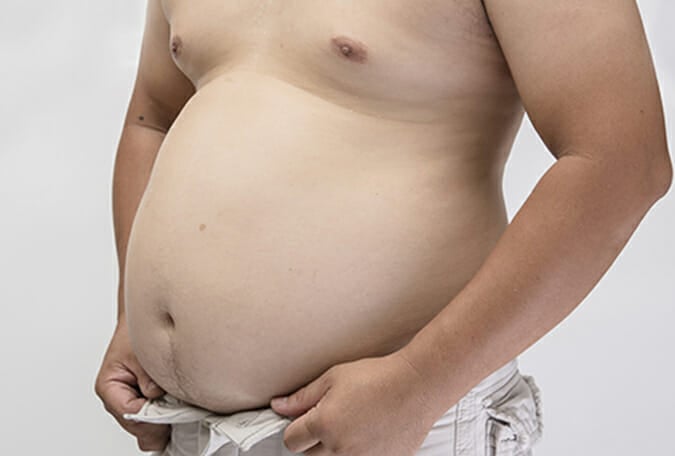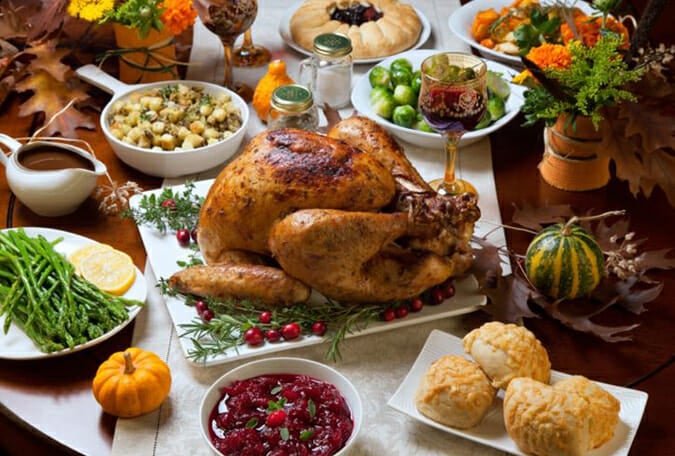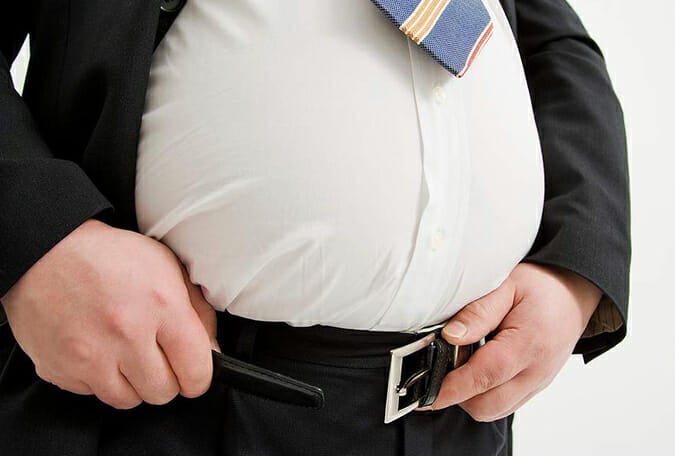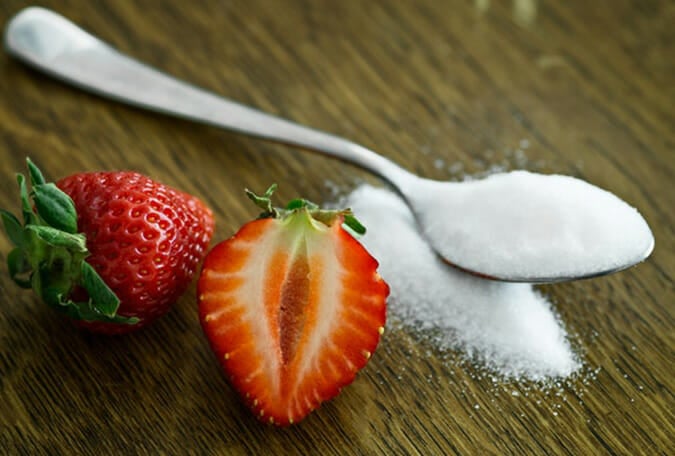Winter weight gain can be very upsetting, especially if you work so hard throughout the rest of the year only to ruin your weight loss progress once the snow comes falling down.
I spent hours going through available research on weight gain, and I consulted our dietician.
Here's everything you can do to keep yourself from gaining weight during this time of the year. And the first step is understanding why it happens.
Quick Summary
- To avoid gaining weight in winter, understand the reasons behind it, such as evolutionary tendencies, holiday meals, and reduced physical activity.
- Implement strategies like staying active, controlling portion sizes, and limiting high-calorie holiday drinks to counteract winter weight gain.
- A study in the Journal of Obesity says that most people gain between 1.3 to 5 pounds during the holiday season.
- In my experience, being mindful of diet and maintaining a regular exercise routine are key to successfully managing weight during the challenging winter months.
10 Reasons Why We Gain Weight

There are tons of reasons for gaining weight in the winter.
From natural dispositions to biological changes to social factors, it is so easy to gain weight in winter because our weight is affected by several different elements.
By learning more about the reasons we gain weight in the winter, the more we can do to avoid the factors that cause weight gain and learn how to prevent it from happening again the next time temperatures drop.
1. Evolution: We’re Preparing for Hibernation
Hibernation isn’t only for bears and other wildlife. Scientists believe that we have a natural tendency to avoid the cold and eat more when it gets darker sooner.
We tend to consume approximately 200 additional calories per day as the sun starts to set sooner.
- Moodi Dennaoui, Nutritionist & Bodybuilder, The Diet Doctor
Our ancestors didn't know if and when they would find sources of nutrients during winter months, and that fear is potentially an inherited trait that makes us want to stock up on calories and stay indoors when it’s cold.
So, if you find yourself in bed binging Netflix and chowing down on more snacks than usual during the colder months, this could be why.
2. We Sleep Too Much

The lack of sun and shorter days in the winter can actually alter hormone production.
More specifically, sleep hormones.
An article published on the National Center for Complementary and Integrative Health says that when faced with less sun, the pineal glands in our brains produce more melatonin, a sleep hormone that can make you sleepy even if it is not time to sleep [1].
An increase in melatonin can also increase appetite
The lack of energy and motivation is due to the lack of sun in the winter is a problem when combined with a bigger appetite. It could lead to weight gain if not monitored.
3. Holiday Meals

Reflecting on my own experiences, I can't deny that the lavish holiday meals are one of my favorite parts of winter.
The temptation to indulge in these hearty feasts is something I've had to consciously manage to maintain my fitness goals.
By New Year’s, chances are you have been binge eating on and off for a month and feel completely sluggish and bloated.
All of these holiday meals and parties can add up and increase your winter weight gain.
4. Holiday Stress
The holiday season, while festive and joyous, can also be a significant source of stress, impacting our eating behaviors. The hustle of holiday preparations, family gatherings, and financial pressures often lead to increased levels of stress.
This heightened stress can trigger emotional eating, where individuals turn to food for comfort rather than hunger.
This type of eating, driven more by emotional needs than nutritional ones, can lead to significant winter weight gain.
5. Holiday Drinks

From personal experience, I know how easy it is to get carried away with holiday drinks.
Eggnog and hot toddies, while festive, are loaded with calories. I've learned to enjoy them in moderation to avoid the extra winter weight.
The more you drink, the more the fat and carbs add up and can equal putting on some extra pounds as you make your rounds during the holiday season.
Keep in mind that alcohol not only adds calories to your diet, but also slows down your body’s fat-burning capabilities. An American Journal of Clinical Nutrition study found that drinking can slow your metabolism by as much as 73 percent.
- Emily G.W. Chau, Journalist, The Seattle Times
6. Our Metabolism Increases

During my first winter of serious fitness training, I noticed my body working harder to stay warm, naturally boosting my metabolism.
However, the increase in metabolism is not always beneficial to our health.
For instance, according to Mayo Clinic, a rapid increase in metabolism can result in sudden weight gain, due to the prospect of compensating for the amount of energy being lost [2].
Generally speaking, this can cause our cravings to skyrocket, and the amount of food we consume along with it.
7. Warm Comfort Foods
The increase in darkness and cold temperatures in the winter not only make you eat more, but they also make you reach for hearty comfort foods that you may not regularly eat, especially if the food is hot.
That’s one reason hearty stews, pasta, and roasts can seem especially appetizing when there is cold weather.
Not to mention that warm food can feel so good going down on a cold, winter day.
My clients say that finding healthier versions of these dishes has been key to their winter diet.
When the weather is cold, our bodies naturally want to increase our body temperatures and that is easily done through eating. Metabolizing anything generates warmth because the process naturally expends energy.
8. We’re Less Likely to Exercise

Last winter, the cold, dark evenings really tested my motivation to exercise.
I had to find indoor workout routines to keep up with my fitness goals, proving that a little creativity can overcome the temptation to stay cozy indoors.
Not to mention, when we stay inside, we’re more likely to chow down on those warm comfort foods than start exercising.
Not to mention that when it’s cold outside and it gets darker quicker, it is much easier to make excuses for not going to the gym or getting out and exercising than in the summer.
After all, who wants to go for a run when it’s cold and dark?
9. Less Fresh Produce

Summer is the time of year when fresh produce is plentiful and much easier to choose over foods that are bad for you.
It also seems like there’s a produce stand every time you turn around in the summer, and it’s super simple for you to pick up fruits and veggies on a whim.
In the winter, when gardening and farming slows down due to the colder weather, there isn’t as much produce to choose from and there is nowhere near as many produce stands.
That makes it easier to chow down on comfort foods and snacks filled with calories and fat.
10. Seasonal Affective Disorder

If you feel less motivated and even more depressed than usual when it gets colder and darker outside, it’s not in your head.
According to a study in the National Library of Medicine, some people develop Seasonal Affective Disorder (SAD) in the winter because of the lack of sunlight [3].
Studies show that the sun plays a very important role in keeping our moods balanced, so when it goes away in the winter, moods can plummet.
My clients say that finding ways to stay active and get sunlight, even in small doses, has been crucial for their mental and physical health during winter.

6 Ways To Avoid The Winter Weight Gain

You can use these 6 helpful tips to stay away from situations that could potentially ruin your weight loss progress and mess up the year of fitness and healthy habits that you’ve achieved.
1. Stay Active

Make it a point to exercise even if you lack the motivation.
If you are someone who usually likes to go for a walk, run, or bike ride outside, switch it up and try out the machines at the gym instead.
And if you are the type of person who really likes going outdoors, try out a new sport like ice skating, skiing, or snowboarding.
These are all great ways to exercise while still having fun, even if you are on vacation!
Take five to 10 minutes and do some low level aerobic exercise like jogging in place or doing jumping jacks. That way, when you step outside, you'll already be warm.
- Richard Cotton, PhD, Geneticist, WebMD
2. Don’t Graze

When you’re inside multiple hours a day or when you spend a lot of time at holiday parties, grazing can seem so easy and tempting, but this can really add up and lead to gaining more fat.
To keep from grazing, make sure to set clear boundaries with yourself.
This can mean allowing yourself to only snack at certain times, or setting a limit to the portion sizes that you can eat.
If you go to a party with a huge table of snacks and goodies, try not to eat more than you would for a normal meal.
3. Watch The Booze

While you may steer clear of the dessert table at parties, you may be forgetting to avoid another key factor in winter weight gain: booze.
Alcoholic drinks can be loaded with calories, especially mixed drinks with all the sugars and carbs they contain.
Try not to knock back too many mixed drinks to keep from putting on weight, or find alternative mixers to lower the number of calories you are consuming.
Also, make sure to drink plenty of water between drinks to keep you from drinking too much.
4. Stay Happy

Seasonal Affective Disorder (SAD) is a real threat in the winter.
It can be accompanied by depression, lack of motivation, and even insomnia.
Not to mention that if you are stressed about holiday finances, your cortisol levels will rise and add to the winter weight gain.
That’s why it’s so important to stay happy during the cold months.
Do what makes you happy in the winter and make sure to get plenty of sunlight whenever possible. If necessary, even look into getting a light box or going to therapy.
5. Fill Up on Whole Foods

I've made a conscious effort to fill my diet with whole foods during winter.
Incorporating more protein and vegetables in my meals not only keeps me fuller for longer but also helps me resist the temptation to indulge in less healthy options.
Whole foods like these can keep you fuller longer, making it less likely that you will binge eat later. We talk about this more here.
Also, don’t skip meals or avoid eating until a certain time. Skipping meals is another way to almost guarantee that you will binge eat once you get extremely hungry.
6. Limit Sugar

Sugar can trigger a spike in your insulin levels that could increase your appetite and potential for fat storage.
To remove this threat, limit the amount of sugar you eat.
This means cutting back on sweets, sugary drinks, and processed foods like packaged snacks [4].
How to Lose Weight in the Winter?
To lose weight in the winter, make sure your body burns extra calories and avoid all the comfort foods that you might be tempted by in cold weather.
Studies have shown that overfeeding on carbs will lead to increases in body fat [5].
Yes, that hot chocolate to keep your body warm isn’t going to do your figure any favors, even under those forgiving winter clothes.
You should also consider rebalancing your macros in favor of more calories from protein.
FAQs
Is It Harder to Lose Weight in the Winter?
Does Your Body Hold Onto Fat in Winter?
Yes, your body tends to hold onto fat in winter. Less sun exposure and cold temperatures can trigger an evolutionary response where the body tries to retain as much energy as possible.
Does Cold Weather Burn Fat?
Cold weather alone does not directly burn fat. However, exposure to cold temperatures can slightly increase your metabolic rate as your body works to maintain its core temperature, burning a few extra calories. Additionally, cold weather can encourage shivering, which can increase calorie expenditure and potentially aid in fat loss.
References
- https://www.nccih.nih.gov/health/melatonin-what-you-need-to-know
- https://www.mayoclinic.org/healthy-lifestyle/weight-loss/in-depth/metabolism/art-20046508
- https://www.ncbi.nlm.nih.gov/pmc/articles/PMC3004726/
- https://www.healthline.com/nutrition/how-much-sugar-per-day
- https://www.ncbi.nlm.nih.gov/pmc/articles/PMC5786199/
About The Author
You May Also Like






